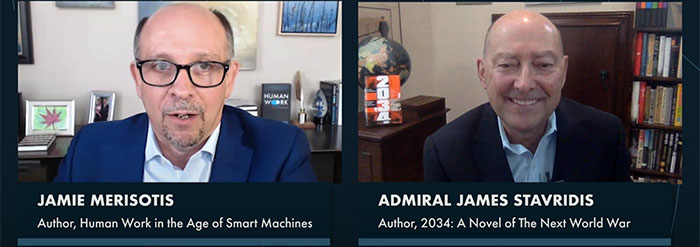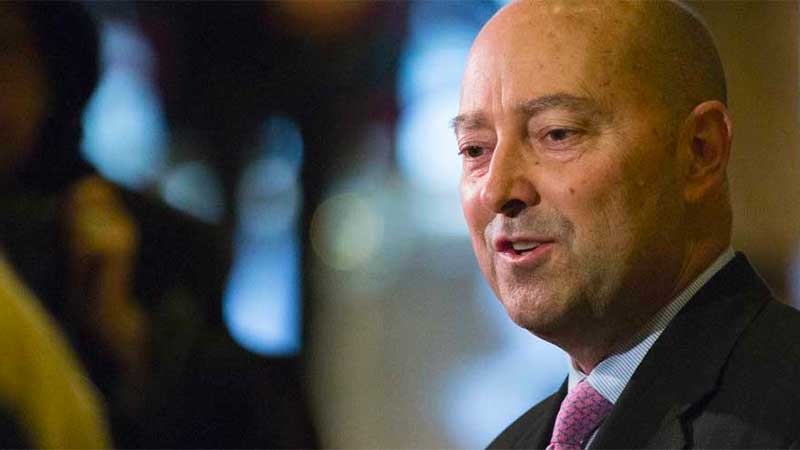
Higher education has met some critical challenges during the wrenching two years of the pandemic but still must do better at making education affordable and helping students complete their degrees.
I recently hosted a fascinating webcast with my longtime friend, former NATO Commander and retired admiral Jim Stavridis, to talk about national security, higher education, and the implications for both on the human work of the future.
I asked the admiral how well higher education is preparing for a future in which we must educate more people to do work that intelligent machines cannot do. The former dean of The Fletcher School of Law and Diplomacy at Tufts University described what’s happening as a “mixed bag.”
On the plus side, he said, colleges and universities are paying more attention to society outside the academy—“doing better at addressing some of the issues of justice, historical injustices, and creating systems that can overcome them.”
Schools also are doing better using technology to make information and education more widely available:
“COVID has wrenched the academy to distribute knowledge more broadly using platforms exactly like we’re doing now” in this video webcast, he said.
Stavridis said when he was dean, he pitched faculty on opportunities such as virtual learning, and faculty members dismissed his ideas. But now, “every school has wrenched itself into this brave new world. And boy, are we enormously better than we were a couple of years ago.”
On the other hand, he said, there’s still much work to do: Schools must do a better job helping students complete their degrees, make education affordable, and provide resources for students struggling with mental health issues.
Creating an expectation of opportunity for all will help improve the prospects of Americans, he said, however: “We need to put more responsibility on the individuals themselves.”
Consider the technology in an everyday mobile phone, he said, holding up his own:
“Think about these supercomputers we carry around. With this device in my hand, I have access to all the world’s knowledge.
“What we need to do is put the capability and training in the hands of the individuals (through education), but then give them a sense that you’ve got to figure this out using those technologies.”
Each of us is the product of Greek families, so naturally, we talked about the importance of immigration.
Stavridis said his grandparents came to the United States in 1922 in a fishing boat from Turkish-controlled Greece. It meant a lot to him, then, when in 1992 he sailed to Turkey as the captain of a billion-dollar warship.
“What happened in the middle? The United States of America” and the opportunity this country provides for people who fight fiercely to get here and then work hard once they arrive.
“It’s the ‘Hunger Games’ out there, and these are the ones we want—the ones who get here,” he said.
We also discussed what historians would write about the 21st century.
The admiral said artificial intelligence, cybersecurity, the rise of China, climate, and racial justice would be important topics. But a powerful story will be about the rise of women.
“This century, women will be fully enfranchised globally. That is the most optimistic thing, the potential of women getting fully vested in this society.”
